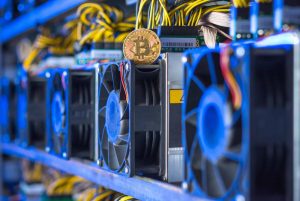Philippine Oil Deregulation – A Policy Research Analysis
13 min readI. INTRODUCTION
The Policy As An Output
Embodied in the Republic Act No. 8479, otherwise known as the “Downstream Oil Industry Deregulation Act of 1998,” is the policy of the state that deregulates the oil industry to “foster a truly competitive market which can better achieve the social policy objectives of fair prices and adequate, continuous supply of environmentally-clean and high quality petroleum products” (Congress 1998).
With deregulation, government allows market competition. That means government does not interfere with the pricing, exportation, and importation of oil products, even the establishment of retail outlets, storage depots, ocean-receiving facilities, and refineries.
It has been a decade ago since lawmakers made a proposition that deregulation would secure the Philippines from the vulnerability of oil price shocks due to its heavily dependent on imported oil. But it is now increasingly apparent that many are calling to scrap the law as six out of ten Filipinos favor the repeal of RA 8479 (Somosierra 2008).
The Policy As A Process
When President Fidel Ramos started his administration in 1992, the country had already started feeling the effects of power supply deficiencies, with major areas already experiencing power interruptions. The power crisis caused a slowdown in the national economy for nearly three years and prodded the government to initiate major reforms in order to rehabilitate the energy sector (Viray 1998, p.461-90). In response to a power supply crisis, Ramos revived the plans to liberalize the oil industry that were cut short during the Aquino administration due to Gulf crisis.
The government’s efforts to enact an oil deregulation law were also intensified in 1995 when the Oil Price Stabilization Fund (OPSF ) started to threaten the fiscal stability of the economy. Deregulation was thus seen as the solution to the recurring deficit.
The problem of the OPSF deficit was in part related to the highly political nature of oil prices, which encouraged government to defer price increases as much as possible in order to avoid public protest even at the expense of incurring a fiscal deficit. However, government mismanagement of the fund also included using it for non-oil purposes such as financing other government projects or the public sector deficit when it was in surplus (Pilapil 1996, p.12).
At the height of a strong lobbying effort for deregulation by oil companies and despite the loud opposition of militant groups, the industry was eventually deregulated in 1996 with the enactment of RA 8180 (the Downstream Oil Industry Deregulation Act of 1996) in Congress.
However, Supreme Court declared in 1997 the unconstitutionality of RA 8180. The Court decision stemmed from three provisions in the law that were deemed to inhibit free competition and therefore, violated the anti-trust mandate of the 1987 Constitution (Supreme Court 1997). But administration Congressmen quickly re-filed the oil deregulation bill leading to the new oil deregulation law. RA 8479 was then enacted to pave the way for the full deregulation of the oil industry. Since then, government has no longer control over the industry. What it can do is only monitoring.
Applicable Models
The policy model that best describes the policy process is Vig and Kraft 1984 model where policy stages/phases are characterized by five elements: 1) agenda setting, 2) policy formulation, 3) policy adoption, 4) policy implementation, and 5) policy monitoring.
On the other hand, the model that best describes the policy approach is Mixed Scanning because the Ramos administration resorted to rational planning process and incrementalized on liberalization plan of the Aquino government.
II. THE POLICY IN THE CONTEXT OF THE POLICY SYSTEM
The Policy Environment
Identified policy environment includes the regime characteristics of Ramos Administration, socio-economic structure in 1990’s, and the prevailing international financial influence on the country’s economy and politics.
The Policy Stakeholders
Identified as stakeholders in this policy are the Filipino people, the President, Legislators, Supreme Court, DOE, DOJ, DTI, NEDA, the oil companies, NGO/advocacy groups, and media.
The Interrelationships Between Policy Environment And Stakeholders
Despite a strong opposition coming directly from ordinary people, transport groups, and NGOs, the oil deregulation policy was still pushed through. It was formulated and instituted under the regime of President Ramos who, in his flagship program called the Philippines 2000, envisioned to make the country globally competitive by pursuing the thrusts of deregulation, market liberalization, and privatization. The media then exposed the fact that the biggest factor that influenced the formulation of the policy was the perceived eventual bankruptcy of the Oil Price Stabilization Fund, which had been originally established by President Ferdinand Marcos for the purpose of minimizing frequent price changes brought about by exchange adjustments and/or an increase in world market prices of crude oil and imported petroleum products.
Influenced by the International Monetary Fund, Ramos administration argued that there was a need to deregulate the industry because under a regulated environment, prices are not allowed to rise and fall with market levels. This means that when prices went up, government had to shell out money to subsidize the difference between the old and the new price.
According to the National Economic Development Authority (NEDA), had the government opted not to deregulate, OPSF obligation would have ballooned to at least P8.3 billion in 1998. The P8.3 billion is equivalent to the construction of more than 4,500 kilometers of provincial roads, 51,000 deep wells of potable water, 25,000 school houses, or free rice for 20% of the poorest Filipinos (Bernales 1998)
The Supreme Court in 1998 ruled in favor of the constitutionality of the Downstream Oil Industry Deregulation Act of 1998. Since then, it has been the policy of the subsequent administrations to deregulate the industry. DOE, DTI, DENR, DOST are agencies mandated to serve as the monitoring-arm of the government.
Is The Policy Working?
The answer is obviously “No.” IBON Foundation reported that the Oil Deregulation Law has further strengthened the monopoly of the big oil companies as automatic oil price hikes are allowed. Consequently, other oil companies took advantage of the policy, hiking pump prices of all petroleum products by around 535% since the Oil Deregulation Law was first implemented in April 1996 (Bicol Today 2007). The policy is also unable to solve or, at least, mitigate the effects of global oil crisis.
III. THINKING ALOUD
A. Repeating The Process
a.1 Problem Definition/Structuring
It has been recognized that the problem with oil is far from over as deregulation policy fails to meet its goal to foster a truly competitive market and reasonable oil prices. The current president herself, Gloria Macapagal Arroyo, acknowledges the fact that the oil crisis is threatening to erode the very fiber of the Philippine society.
Unlike in 1998, the crisis today seems to be more irreparable as the United States is facing what many economists describe as the worst economic crisis in its history, triggering unstoppable skyrocketing of oil prices and prices of foodstuffs around the world. As already stated, the oil crisis is a global one and has to be addressed not only at the national level, but at the international level as well.
But why is the oil crisis a global crisis? Is it really beyond the government control?
The Philippines, like many other nations, buys the oil at the spot market. By “spot” is meant, that one buys the oil at a market only 24 to 48 hours before one takes physical (spot) delivery, as opposed to buying it 12 or more months in advance. In effect, the spot market inserted a financial middleman into the oil patch income stream.
Today, the oil price is largely set in the two futures markets: London-based International Petroleum Exchange (IPE) and the New York Mercantile Exchange (NYMEX). Here, traders or investors buy or sell certain commodities like oil at a certain date in the future, at a specified price. Basically, traders invest in the futures market by buying futures contracts called “paper oil” or simply paper claim against oil. The very purpose of buying oil is not to wait for the actual delivery of the physical oil in the future, but to sell the paper oil to another trader at a higher price. That’s how investors engage in widespread speculation; and it is becoming a viscous cycle. Almost all countries, including the Philippines, buy the oil at the spot market where the price is already at its peak.
In a year 2000 study, Executive Intelligence Review (EIR) showed that for every 570 “paper barrels of oil”-that is futures contracts covering 570 barrels-traded each year, there was only one underlying physical barrel of oil. The 570 paper oil contracts pull the price of the underlying barrel of oil, manipulating the oil price. If the speculators bet long-that the price will rise-the mountain of bets pulls up the underlying price (Valdes 2005).
This only disproves the popular assumption that oil price hike has something to do with the “law of supply and demand.” In fact, as much as 60% of today’s crude oil price is pure speculation driven by large trader banks and hedge funds. It has nothing to do with the convenient myths of Peak Oil. It has to do with control of oil and its price (Engdahl 2008).
In its recent statement, IBON Foundation cited a study conducted by the U.S. Senate Permanent Subcommittee on Investigations, which revealed that 30 percent or more of the prevailing crude oil cost is driven only by speculation. IBON further cited that speculation adds about $35 to a barrel of crude oil (Martinez 2008).
a.2 Developing Alternative
In the face of the alarming oil price hike that threatens the survival of ordinary Filipino people, a number of stakeholders call for alternative solutions: 1) amendment of the Oil Deregulation Law, 2) scrap/repeal the law, 3) removal of 12% vat on oil, 4) seek alternative sources of energy, and 5) engage in country-to-country oil agreement.
a.3 Options Analysis
1. Amendment of the Deregulation Law
As the public continues to hurt from surging oil prices, many policy makers call to re-examine the Downstream Oil Industry Deregulation Act of 1998. One of whom, is Ilocos Sur Rep. Eric Singson who has sought several amendments in the said law to ensure transparency in the pricing of oil products and encourage greater competition in the retail industry, which has been under the influence of giant oil companies. He cited the need to amend Sections 14 and 15 of RA 8479 to strengthen the powers of the Department of Energy (DOE) so it can effectively carry out its mandate to inform and protect the public from illicit practices in the oil industry and to provide more financial assistance for the establishment and operation of gasoline stations, which will encourage investment and fair competition (Malacanang 2005).
2. Scrap/Repeal the Oil Deregulation Law
To many, amending the law is not enough to rectify the skyrocketing prices of oil and oil-based products; they demand for the repeal, instead. A lawmaker from the Lower House, Cagayan de Oro City Rep. Rufus Rodriguez filed House Bill 4262 aiming to repeal Republic Act No. 8479, arguing that instead of fostering a competitive market, the law has only strengthened the oil cartel in the country and brought the oil prices up. The bill also seeks to re-establish the Oil Price Stabilization Fund. He articulated that dominant oil companies still dictate the price because even new oil industry players get their supply from the giants (Sisante 2008).
Militant groups and other non-government organizations have staged rallies and strikes all over the country in opposition of the deregulation policy. Kilusang Mayo Uno (KMU), one of the country’s prominent labor groups, contested that cartelization still exists amidst deregulation. In its recent statement, KMU articulated that with recent Dubai oil prices pegged at $97 per barrel (as of 3rd week of September), local price of diesel is at P49/liter; while when Dubai crude was at $97/liter on Nov. 6, 2007, diesel in the Philippines was sold only at P37.95/liter, or P11.05/liter lower than the present rates (GMANews.TV 2008).
3. Removal of 12% VAT on oil
Senator Mar Roxas said that government must heed calls to remove the 12% value-added tax (VAT) on oil and oil products as prices continue to go up despite the lowering of oil prices in the world market. Roxas had filed Senate Bill No. 1962. However, in her eighth State of the Nation Address (SONA), President Arroyo, stated that it will be the poor who will suffer the most from the removal of VAT on oil and electricity as this will mean the loss of P80 billion in programs being funded by her tax reform (Arroyo 2008).
4. Alternative sources of energy.
While many have engaged themselves in the long-running debate about amendment vs. repeal of the law, a number of stakeholders argue that Philippine government must, instead, focus on alternative sources of energy to rectify the heavy dependence on imported oil. Senator Juan Miguel Zubiri, now considered “Father of the Philippine Biofuels Bill,” has hyped biofuel as the miracle product which can lower oil prices. But more and more scientists are worried that focusing on biofuels could jeopardize food production.
The Philippine LaRouche Society, an increasingly emerging think tank organization in the country, says that biofuel advocacy is a losing proposition as it competes with food production for human consumption. The organization calls, instead, for the revival of the Bataan Nuclear Power Plant (BNPP) as soon as possible to provide the population with a cheap, reliable, and continuous source of power to subsequently free the people from dependence on oil. The organization further articulates that since that will require huge financial requirements, the Philippine government must, therefore, declare a moratorium on foreign debt payments-since much of which are onerous and merely product of “bankers arithmetic” (Billington 2005).
5. Country-to-country oil agreement
The Philippine LaRouche Society has long been proposing to the government to initiate immediate steps to establish bilateral contract agreements with oil-producing countries of not less than 12 months’ government scheduled deliveries at reasonable, fixed prices. Government can also enter into commodity-swap agreements with oil-producing countries.
As a member of the United Nations and other intergovernmental associations like APEC and WTO, the Philippine government should join the growing worldwide call for a fair and honest oil trading by de-listing oil as a commodity traded in the futures market.
a.4 Deciding the Best and Most Feasible Option
It must be known to all the Filipino people that oil deregulation, as a policy, has failed to foster a truly competitive market towards fair prices and adequate, continuous supply of environmentally-clean and high quality petroleum products. Proposed solution # 2 (scrap/repeal the Oil Deregulation Law) is therefore a better option. But repealing the Deregulation Law is not the ultimate answer to the rise in oil prices. Even if the law is repealed, the Philippines will still be subjected to the same factors-a rise in oil prices in the global market.
Proposed solution # 5 (country-to-country oil agreement) can address the issue of the oil crisis at the international level. How about the efforts to solve the crisis at the national level?
The Philippine government must revive the Bataan Nuclear Power Plant to provide the population with a cheap, reliable, and continuous source of power to subsequently free the people from dependence on oil. As proposed, government must direct enough funds, instead for debt servicing, towards the revival and upgrade of BNPP. Removal of the entire E-VAT, not only on oil, must also be taken into consideration to ease the pain of the Filipino people. By moratorium, government doesn’t have to extract a pound of flesh out of every Filipino to have the means to fund its programs.
B. Why seemingly “better” options are not adopted? The Peculiarities of the Philippine Policy System
From the standpoint of the present administration, amending RA 8479 seems to be difficult to adopt because re-regulating the oil industry would mean subsidizing oil prices-something like OPSF. To many, this does not work in an era of rising crude prices because it would entail government resources. This is where debt moratorium comes in as an effective fiscal strategy. But moratorium, to many skeptics, is unwise because they fear the blackmail or retaliation of the multinational creditors. Our leaders must learn how then President Nestor Kirchner of Argentina defied the predatory financial institutions, averring that “There’s life after the IMF.”
On the other hand, many leaders deem country-to-country oil agreement impossible to implement as the giant oil companies have still strong influence on the policy-making process in the country. On the part of the oil companies, it will be a huge loss if government will assert its power to have a bilateral agreement with any of the oil-producing country. Also, many leaders consider the Philippines as a small nation with no voice in the international assembly. But it is a matter of having “big balls,” to put it in a figurative language. After all, they are the leaders and are mandated by the Constitution to protect and promote the general welfare.
Another peculiarity of the Philippine policy system is the negative perception towards nuclear energy. BNPP has been stigmatized as being environmentally dangerous and as being associated with “corruption.” The fact of the matter is, the technology has already evolved and been modernized. The Philippine government spent $2.3 billion to build BNPP without generating a kilowatt of electricity. It is high time to revisit the old strategy to finally free the country from dependence on imported oil.
It is worth mentioning that the International Atomic Energy Agency inspected the power plant in Bataan early this year and reported that this could be rehabilitated, in full compliance with high international safety environment standards, in at least five years at a cost of $800 million (Burgonio 2008). The Philippine LaRouche Society emphasizes the importance of declaring debt moratorium as a fiscal strategy to start the rehabilitation. The organization argues that the Philippines is servicing the debt over US $10 billion per year, which is more than enough to start the full operation of BNPP (PLS 2008).
IV. INTEGRATION AND RECOMMENDATIONS: TOWARDS A BETTER PUBLIC POLICY SYSTEM
With the recognition that oil crisis is a global oil crisis, affecting the lives of all inhabitants of our planet, it is incumbent, therefore, upon the leadership of the Philippines to immediately take the following steps:
A) To immediately repeal the oil deregulation law, for the government to assert its sovereign power to have control over the oil industry and economy as a whole.
B) To propose at any international summit or assembly that oil, being a commodity, critical to the continuation of human life, be de-listed as a commodity traded in the futures market, thereby escaping the clutches of unscrupulous people and speculative financial institutions.
C) To initiate immediate steps to establish bilateral contract agreements with petroleum-producing countries of not less than 12 months’ government scheduled deliveries at reasonable, fixed prices.
D) To design a comprehensive energy development program, such as nuclear power plant being the most cost-efficient source of energy to date, for the purpose of freeing our country from complete dependence on imported energy sources. To this end, moratorium on foreign debt must be taken into account as a paramount fiscal strategy.
The crisis, which we now face as a nation, requires understanding of the problems through diligent study and concomitant courage to do what is right for the benefit of the present and future Filipino generations.


![The strategic approach to AI in the enterprise 2 Top 10 Leading Countries in AI Research and Technology [current_date format=Y]](https://cryptheory.org/wp-content/uploads/2023/08/ai-strategie-300x193.jpg)



